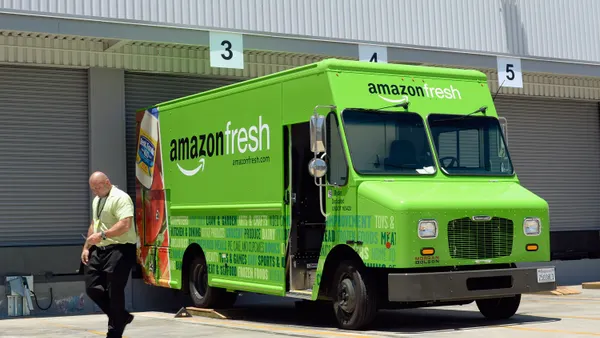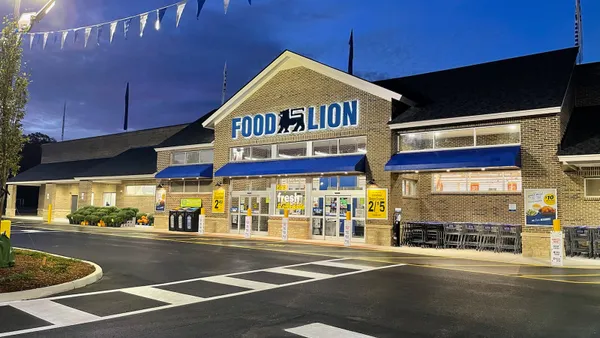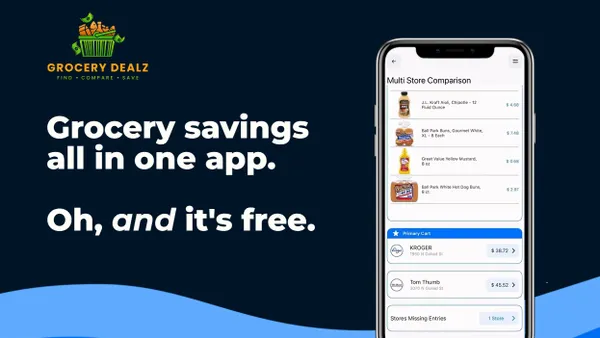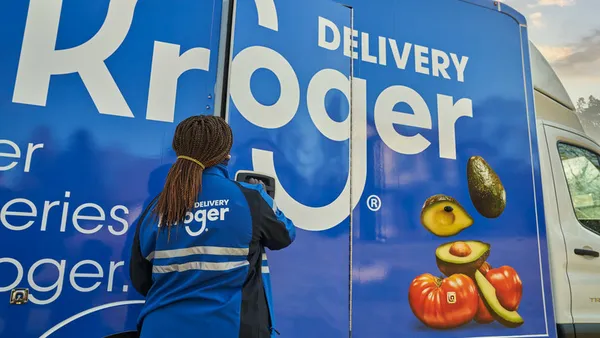Dive Brief:
- Amazon now offers an assortment of condiments under its Solimo and Happy Belly private label lines, according to a report by TJI Research. This adds to a spate of recent own brand food and beverage introductions, including Happy Belly milk and cheese, and Solimo energy drinks and coconut milk. The retailer now has more than 130 private label brands and more than 400 Amazon exclusive brands.
- New Solimo brand salsas include traditional mild, medium, hot and chunky hot varieties. Each 24-ounce bottle is priced at $2.99.
- Under its Happy Belly brand, Amazon has introduced vegetable oil priced at $9.99, canola oil at $10.99, white distilled vinegar ($2.02) and red wine vinegar ($3.29). Amazon's new Happy Belly mustard includes spicy brown, yellow and Dijon varieties ranging from $2 to just over $3.
Dive Insight:
As demand for private label continues to grow and traditional grocers pace behind mass retailers, Amazon is looking to meet consumer demand with the release of even more food products under its existing lines. The e-tailer's own brand food and beverage releases have long been a slow drip, but that seems to be picking up as it works to improve its online and physical grocery assets — including a new chain that's reportedly in the works.
"The selection offered within these brands has significantly increased over the last several months," TJI Research's Justin Smith noted in the firm's most recent post.
In addition to these latest product releases, Amazon seems to be laying the groundwork for a concerted push in private label food beverage, with recent job posts focused on this area, according to TJI.
With its new condiments linuep, Amazon is continuing to pursue pantry staples in private label and double down on offerings from Happy Belly and Solimo.
The retailer recently launched Happy Belly private label milk, and its Solimo coffee pods have been a top performer, according to Edge by Ascential. According to research from market intelligence firm Numerator, Amazon's Solimo brand contributed 21% to Amazon private label CPG growth in 2018.
As Amazon continues to strengthen its grocery category, it could expand its lineup of private label products to include more everyday grocery items. These items drive regular trips and could help the company reinvigorate its AmazonFresh service as well as line the shelves of its new chain, which reportedly will focus on conventional, low-price offerings.
"What might follow are the bread and the eggs to get to that core basket and start to penetrate the shopper’s wallet for those core shopping trips," Danny Silverman, chief marketing officer at Edge by Ascential, told Grocery Dive in an earlier interview.
Amazon has the advantage of tracking and collecting data on how national brands' products perform. It can use that data to find exactly what products consumers want and which items might perform well in private label, giving the company unique intel into grocery purchase behavior before they ever launch a product.
Another reason for Amazon to pursue private label is that it gives the company more control over the supply chain and drives higher profit margins. According to a recent report from the Private Label Manufacturers Association, mass retailers including Target and Costco are winning the private label space with high-quality products at lower prices, and giving customers the opportunity to purchase in bulk.
Amazon shoppers crave the convenience of online shopping and the appeal of lower prices on products for their home and pantry, and a more robust private label portfolio will be an important part of its grocery offering — particularly as the company seeks to compete with grocery giants such as Walmart and Kroger, as well as popular e-grocers including Brandless, FreshDirect and Thrive Market.











